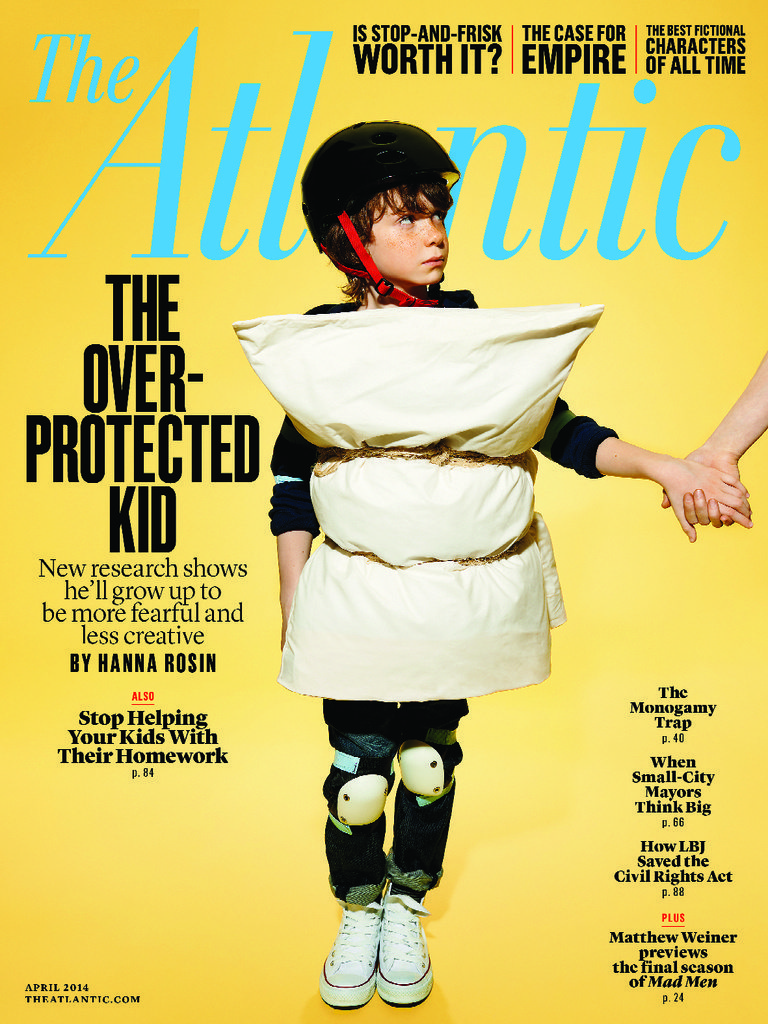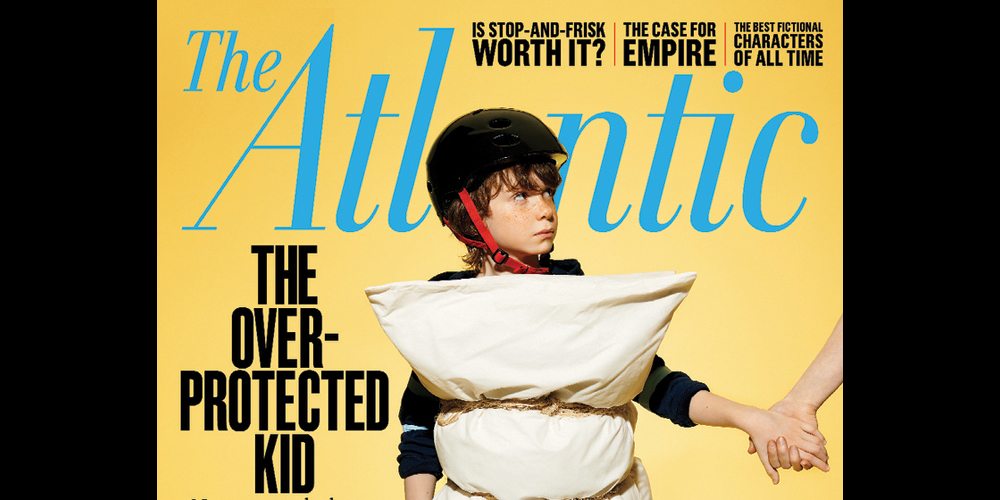 I have an idea for a game called Helicopter Parenting. You set up a Pitchcar track (preferably with ramps) and place a lot of obstacles on it. Then you get some little standing cardboard figures, like from Chutes & Ladders. Finally, each player gets a mini remote control helicopter. Using the helicopters (the parents), you try to blow the figures (the kids) along the path (life) while avoiding obstacles or falling off the track entirely.
I have an idea for a game called Helicopter Parenting. You set up a Pitchcar track (preferably with ramps) and place a lot of obstacles on it. Then you get some little standing cardboard figures, like from Chutes & Ladders. Finally, each player gets a mini remote control helicopter. Using the helicopters (the parents), you try to blow the figures (the kids) along the path (life) while avoiding obstacles or falling off the track entirely.
Of course, in this game, nobody wins. The kids fall over and the parents get frustrated and pretty soon you run out of batteries.
But this is the way we middle-class Americans tend to parent, despite the fact that we keep telling ourselves we should stop overscheduling our kids, let them have more freedom, and let them fail once in a while. Adults who grew up largely unsupervised now can’t imagine letting their own kids walk to the bus stop on their own. There’s too much at stake—if not my child’s safety, then at least her future success, right?
This month’s cover story in The Atlantic is “The Overprotected Kid,” and Hanna Rosin writes about the shift from the time the Baby Boomers were kids until now: kids are rarely out of sight of their parents, nobody is allowed to talk to strangers, playgrounds have become safe but sterile.
It’s this last bit that forms the centerpiece of her article, though. Rosin visits a playground in North Wales called The Land, in which kids pretty much do whatever they want—jump on old mattresses, set fires, drag tires and wooden pallets around to build forts. It sounds like paradise to a kid, and I’d guess would give many parents nightmares. But Rosin argues that safer playground equipment has robbed our kids of the ability to face dangers and overcome fears—besides being boring for anyone older than three.
While some of the research she cites (for instance, about child abduction statistics) aren’t new, the story of these “adventure playgrounds” was fascinating and got me thinking. It reminds me of Garth Sundem’s post the other day about throwing pinecones at his kids—we’re trying so hard to protect our kids that we may actually be harming them in the process.
Rosin tells the stories of Frank Nelson and Etan Patz, two children whose tragic lives have shaped our modern views of parenting. I hadn’t known that the evolution of playground safety guidelines could be traced back to a single incident, nor that Patz’s abduction in 1979 was the trigger for stranger danger. While I can accept the argument that safer playground equipment hasn’t really reduced the number of incidents over the years, I do wonder what the Nelson family makes of the idea that playgrounds are too safe now.
When we lived in rural Kansas for several years, I loved the fact that my kids could run around town with much less supervision. I encouraged their independence, because I didn’t really worry about them getting lost, abducted, or run over, because it was a small town and there wasn’t much traffic. Kids there tended to have more freedom to be on their own. On the other hand, I knew one kid who had a major dirt bike accident and went through surgery, and another who died in a four-wheeler accident just last summer. It’s easy to say that overall kids are better off when you let them tackle things on their own, but what do you say to parents who have to deal with that sort of loss?
Now I live on a busy street, and while I let my older daughter cross the street on her own to the park, I do worry sometimes that some driver isn’t going to be paying attention to a short kid without an adult nearby. Even without my overprotection, I know my kids have less freedom here. For instance, after a child fell while climbing a tree at the elementary school, the school banned tree climbing on school grounds. Every time I read an article like “The Overprotected Kid” I have to remind myself that (1) my daughters should have time to be kids and (2) they’re probably safer than kids in any other time in history.
But change of this sort isn’t going to come from how individual parents treat their kids—it takes a consensus. No city is going to allow a more dangerous playground if they’re fearful that parents are going to sue them in the case of an injury. The culture of parenting needs to change. Until it’s normal for kids to be walking around on their own, drivers won’t be watching for shorter pedestrians by themselves. That, and people are going to call the police when they see kids unattended.
In the end, we have to decide how to balance safety and freedom for our kids. It doesn’t make sense to keep them cooped up forever, as if we can protect them from everything, the way Marlin parents in Finding Nemo. But it also doesn’t mean we need to take unnecessary risks: I still think seat belts and bike helmets are a good idea. There’s a wide range between the two extremes, and I hope I stay somewhere in the middle. I don’t really have any answers, just more questions.
In the meantime, anyone have a spare Pitchcar set?



I think the balance is hard. I know I can be a bit overprotective of my son. I have this terrible ability to imagine the worst case scenario and react accordingly. There are times when I’ve stopped him from doing something because I thought he might get hurt. Some will say — “getting hurt is how they learn.” Yes, but I don’t necessarily want to spend an afternoon in the E.R. to teach that lesson. . .
But my son is also 6. And while I have memories of wandering they neighborhood as a kid — unsupervised — I know that many of those memories are from when I was older — and I also had an older brother (5 1/2 years older) who was often nearby when I was younger. So am I really treating my son much differently than my own upbringing?
So I want to provide a safe environment for my son(s), but I am aware that I might be overprotective.
I have read the entire Atlantic article, and one of my reactions was – the other moms will think I’m crazy or neglectful if I let my kids run all over the neighborhood without supervision. This is a horrible reason to limit their actions, especially as I’m convinced by the statistics on how low and improbably child abduction actually is. But I think it may be a driver for many parents — communal perceptions.
I think this article also hints at but doesn’t actually state another problem. Our children know they are always watched, and there is value in figuring out things about yourself without an audience. Someone once said that character is what you do when no one is watching. I gained a sense of self largely through the journal I kept starting in middle school, but I know many kids who gained that through things they did — on their own, not part of a club or team. Are we going to lose a whole generation of tinkerers (future engineers, scientists, innovators), story tellers (and other “creative” types), because there is a sense of always being on stage, never having privacy to experiment?